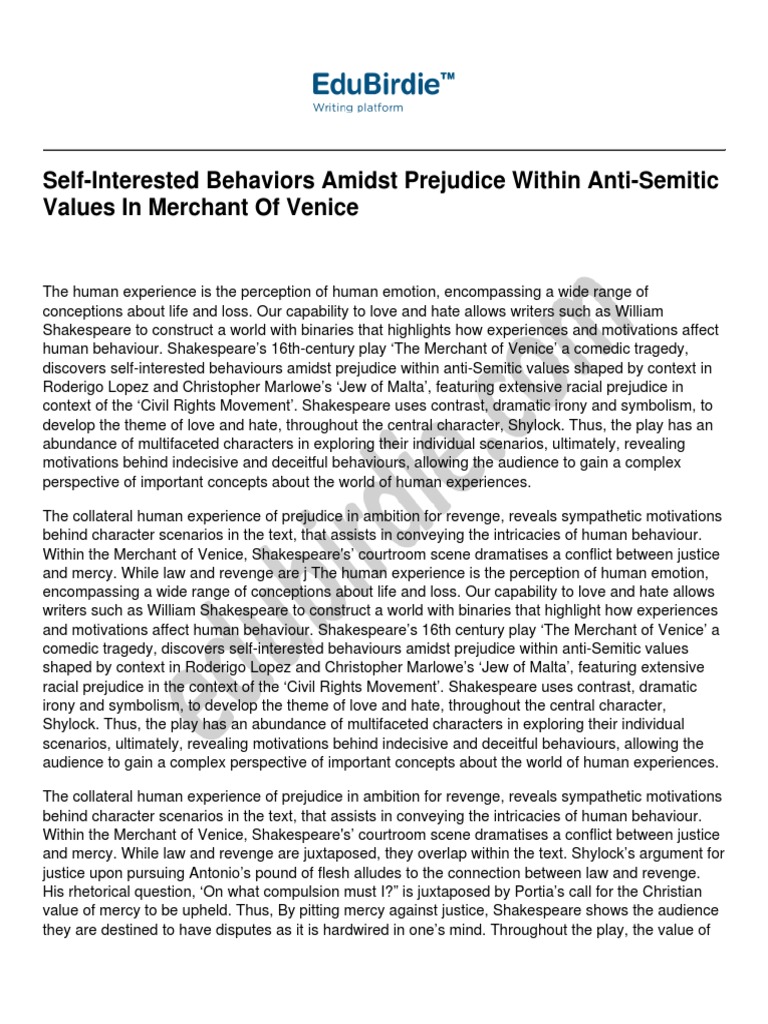In a world profoundly affected by discord and division, the Bahá’í teachings emerge as a beacon of hope. This ideology specifically addresses the insidious nature of prejudice, including anti-Semitism, which has permeated societies for millennia. The call to action incumbent upon Bahá’ís—and indeed all individuals of conscience—is to root out the toxic roots of such biases and ultimately foster unity among all peoples. The metaphor of a garden is particularly evocative; just as a gardener diligently uproots weeds to ensure the flourishing of vibrant blooms, so too must society endeavor to excise prejudice.
At the heart of the Bahá’í faith lies the principle of the oneness of humanity. This foundational tenet impels adherents to recognize the interconnectedness of all people, transcending superficial distinctions such as race, religion, or nationality. The profound wisdom embedded within this teaching serves as a potent antidote to the cancer of anti-Semitism. Prejudice, often born of ignorance and fear, can be dissipated through education and understanding. By cultivating awareness of the shared heritage and experiences of Jewish individuals, the Bahá’í community can foster empathy and compassion, converting a harsh landscape of bias into a vibrant field of acceptance.
To illustrate the importance of engaging with the Jewish community, one can draw a parallel to a mosaic. Each tile in the mosaic represents a different culture, identity, or belief system. When viewed collectively, these tiles create a magnificent picture—one that showcases the beauty found in diversity. Anti-Semitism seeks to rupture this mosaic, tearing apart the connections that bind humanity. Bahá’ís are called to restore and deepen these connections, actively participating in dialogues that celebrate the richness of Jewish traditions and histories.
A salient point within the Bahá’í teachings that enhances the discussion on countering anti-Semitism is the emphasis on justice. Abdu’l-Bahá, a central figure in the Bahá’í faith, elucidated the idea that justice should encompass not only the legal dimensions but also the moral obligations individuals bear towards each other. In this light, combating prejudice becomes a moral imperative. Each act of empathy, every gesture toward understanding, contributes to the edifice of justice. This justice is not merely retributive; it is restorative, seeking to mend the rifts caused by prejudice and nurturing the seeds of reconciliation.
The narrative of anti-Semitism often intertwines with historical misconceptions and stereotypes. The propagation of such prejudices reflects a failure to see our collective humanity. Within the Bahá’í framework, truthfulness is a paramount virtue. Adherents are encouraged to seek knowledge and discern truth, empowering them to challenge and dismantle the stereotypes that undergird anti-Semitism. Through the promotion of education and engaging discussions that reveal the truths of Jewish life and suffering, Bahá’ís can play a crucial role in mitigating ignorance, the breeding ground for many forms of intolerance.
Furthermore, the Bahá’í principle of independent investigation of truth serves as a powerful tool in the fight against anti-Semitic values. Each individual is urged to pursue the quest for understanding and enlightenment unencumbered by dogma. Such an approach engenders an environment where one can critically assess the information surrounding Jewish culture and history, thereby dismantling unfounded prejudices. The continuous endeavor to discern truth not only aids in overcoming personal biases but also elevates the discourse surrounding communal relationships.
Functioning within a framework of unity, Bahá’ís are encouraged to form relationships with Jewish communities. This engagement is more than mere tolerance; it is about embracing the richness of diversity. Collaborative projects—whether they be community service endeavors, interfaith dialogues, or educational initiatives—enable individuals to cultivate deep, meaningful connections. These relationships cultivate trust, thereby mitigating the fears and misconceptions that often fuel anti-Semitic sentiments. In essence, such interactions sow the seeds of societal understanding, contributing to a collective garden where various cultures blossom in harmony.
Moreover, the role of leadership in advocating against anti-Semitism cannot be overstated. Bahá’í leaders are called to speak fervently against injustice while promoting the interconnectedness of all people. Such leadership must be characterized not only by eloquent words but also by action. By standing resolutely against discrimination, irrespective of its guise, leaders can galvanize individuals to recognize their moral duty to counteract the prejudices that afflict their communities.
The potent teachings of the Bahá’í faith advocate for a proactive approach in addressing anti-Semitic values. It is incumbent upon adherents to actively engage in the quest for understanding and unity. As society grapples with the pernicious effects of prejudice, the clarion call from the Bahá’í perspective resonates: it is through education, dialogue, justice, and compassionate relationships that the roots of anti-Semitism can be effectively eradicated. In this noble pursuit, the Bahá’í community can emerge not merely as passive observers but as vigorous participants in the cultivation of peace—a peace that ultimately represents the essence of our shared humanity.
In conclusion, the Bahá’í teachings illuminate a path forward, inviting all individuals to participate in this vital mission. The metaphor of the garden serves as a compelling reminder of the collective responsibility we bear in allowing society’s most beautiful flowers—of unity and acceptance—to thrive unfettered by the weeds of hatred and prejudice. As stewards of this garden, let us wield our tools of understanding and engagement to nourish the seeds of lovingkindness among divergent cultures, ensuring that every individual, including those of the Jewish faith, can flourish. The time for action is now; a harmonious existence awaits if only we have the resolve to cultivate it.
